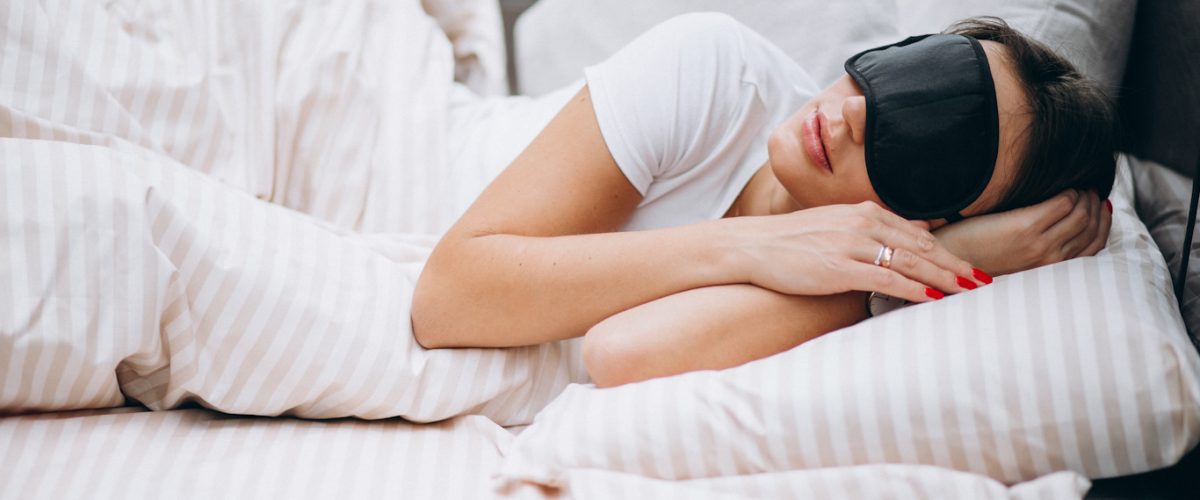
Getting A Good Night's Sleep Is So Important For Your Well-Being
When we miss out on a good block of nourishing sleep it inevitably impacts on the next day, disrupting and decreasing our focus, energy, productivity, emotional balance and so I’ve been reading in my ‘go-to’ health books and websites – it can even affect our weight! When you’re tossing and turning still at 3am it may seem impossible to believe that you can actually gain control of your own quality of sleep. But quite often I’ve learned that it’s in the way we manage our daily routines and our diet that affect and contribute to our sleeping difficulties at night.
As well as a balanced diet, five-a-day, exercise, etc the food listed below and tips could help you get a better night’s sleep. As mentioned above when I’m having trouble sleeping or have a spell of lacking energy, I personally pick up my ‘go-to’ books that I’ve collected since my son was a baby, but because new research changes a lot I also I refer to bookmarked online resources too. This blog is based on my own reading, personal research and experiences. For more fact-based studies and scientific evidence I suggest you seek a professional nutritionist’s advice. So have a read and do what suits you and your family best.
So before we get into the healthy food here are a few suggestions that might help…
If you’re working from home at the moment or a parent taking on a teacher’s role you may feel that tiredness creep in during the afternoon. If you can, try to avoid afternoon naps and those after-big-dinner naps too – fight it because it’ll help you to gain a longer period of sleep at night. Try to go to bed and get up at the same time. Limit or try to avoid the amount of sugary drinks, alcohol, caffeine or large meals late into the evening. Avoid screen-time late into the evening too – we say to our kids and it’s a rule for us too – screen-free at least 2 hours before bed. Dim the lights in the evening – we put the hallway light on low in case anyone needs the bathroom but if the lights are low, that low-light/darkness makes it easier to go back to sleep. Melatonin is a natural hormone that is affected by light, so the brain will produce more melatonin, which makes you sleepy when it’s dark.
Lack of sleep can impact your health so regular exercise is always great for your mental and physical well-being and so are deep breathing exercises, meditation or low music. I don’t know about you but when I go to bed and the bustle and noise of the day falls silent THAT is when my brain goes into overdrive! Residual stress about tasks not completed, your kids, family members, problems with friends, etc play on your mind don’t they? So I make the room dark, I do a sequence of deep-breathing exercises and have music on low, on a 20-30 minute sleep timer. As I say, this works for me, but it also works for our son too, he has a radio on low and the room in darkness, door ajar not closed to allow for air circulation. Experiment, you can try some of these tips and food suggestions and see what works best for you.
Now let’s get on to the foody bit…
What Healthy Food Can You Eat Before Bed To Improve Your Sleep?

Almonds
As well as being a nutritious addition to your diet eating almonds regularly has been associated with lowering the risks of a few chronic diseases, such as type 2 diabetes and heart disease. This is because they contain healthy fats, fibre and antioxidants. It’s also been documented that almonds can improve sleep because they contain that sleep-inducing hormone melatonin. Almonds also contain magnesium which can also help to improve your sleep because magnesium reduces the levels of the stress hormone, cortisol which interrupts sleep. With both of these properties almonds could help to improve the quality of your sleep; about a handful (1 ounce) before bed is advised. Other nuts that contain melatonin are peanuts, cashews and walnuts but obviously these options are only for people who do not suffer with nut allergies. It’s best to eat them at least 2 hours before you go to bed.

Kiwi
Kiwis are such a tasty, healthy fruit containing great amounts of nutritious Vitamins C and K as well as potassium. They also have natural anti-inflammatory properties and can lower cholesterol because they’re also a good source of fibre and antioxidants. As well as peeling and eating them they are also good sliced and added to your daily bottle of water to reap the benefits of this healthy fruit. Kiwis can help improve your sleep because they contain serotonin which is the neurotransmitter that balances mood – making you feel good – this then converts to the sleep-inducing hormone, melatonin. Another fruit containing melatonin is the banana!

Chamomile Tea
Chamomile, from the daisy family, as a tea is a popular herbal drink which is known for its calming effects so it’s a good night time drink before going to bed. It’s also known to reduce anxiety, boost your immune system and even improve your skin. The reasons for this are because of the antioxidant properties in chamomile which can relieve cold symptoms and inflammation. An alternative tea to Chamomile is Valerian, from the honeysuckle family, this has properties that can help relieve insomnia and in turn reduce stress levels.

Peppermint Tea
Peppermint is believed to have anti-viral, anti-microbial, and even anti-allergenic properties therefore it may help with gastro conditions such as indigestion and irritable bowel syndrome (IBS). With this in mind after you’ve eaten a big meal peppermint tea can be a great reliever for bloating and helping to settle the stomach which will help you to relax before going to bed. Peppermint may react with some medications for blood pressure, indigestion and diabetes so always speak to a health advisor before drinking it regularly as a tea or using it in cooking.

Bananas
Bananas are a super fruit for many health reasons. They are rich in fibre and they help to support your digestive system. While they contain good amounts of both magnesium and potassium which are good for boosting energy and reducing anxiety, they also contain tryptophan, which is the amino acid which converts into serotonin which makes you feel good. So you may ask if bananas contain energy boosters how do they help you sleep? Well they also contain melatonin! Which as explained in the sections above is the sleep-inducing hormone. Wow! Yes I know, and bananas are so versatile and have so many health boosting qualities this is why they’re popular with fitness instructors and professionals in sport. There are lots of recipes for banana drinks and high-fibre snacks containing bananas and all are great for getting them into your diet – we love them. Other fruits that contain melatonin are apples, peaches and avocado.

Turkey
Turkey is a delicious and nutritious source of protein. Protein is good for keeping up your muscle strength and appetite. Some people say that it’s a myth that turkey makes you sleepy but it does contain that amino acid again – tryptophan – which we learned from the sections above converts to serotonin which balances mood which then converts to the hormone melatonin. Obviously eating turkey or another protein packed meat like chicken late in the day should be in small amounts and like all of the healthy food suggested here must be consumed at least 2 hours before you go to bed. I don’t know about you but often after a Sunday roast dinner certain family members will always make their way to an armchair for the traditional nap! So there must be some truth in it.

Broccoli
Again broccoli is rich in vitamins, minerals and fibre. It’s versatile and there are many ways to get this super vegetable into your diet, be it sliced and eaten raw, boiled or blended into a smoothie. Broccoli cooked contains as much Vitamin C as an orange! It also contains Vitamins B1, B2, B3, B6, iron, magnesium, potassium and zinc as well as fibre and fibre helps digestion and lowers cholesterol. So how does it help you sleep? Well, green vegetables like broccoli, asparagus and spinach also contain that important amino acid, yep you guessed it… TRYPTOPHAN.
Fun fact, the word broccoli gets its name from the Italian word “broccolo” which means cabbage sprout!
In a household with teenage children – who invariably sleep longer anyway, lucky things – it’s easier to try and manage your sleep than when they were babies and toddlers with active bodies and minds DURING the night AND from the crack of dawn! I found that when my son was very young and sleep was interrupted regularly at night, I had to nap when I could to recharge myself for coping with the daily tasks of motherhood. But keep positive because it is achievable with a few simple changes.
So there you have it, I hope you enjoyed reading my tips and healthy food suggestions. Everyone is different so whether you’re living in a family household or not, hopefully some of it may help you to get a good night’s sleep!
If you liked this healthy foods to improve your sleep blog then don’t forget to share it with others who may find it helpful…
If you enjoyed this post, or if you would like to know more about our school and our Wing Chun Kung Fu lessons while at home please contact us.



